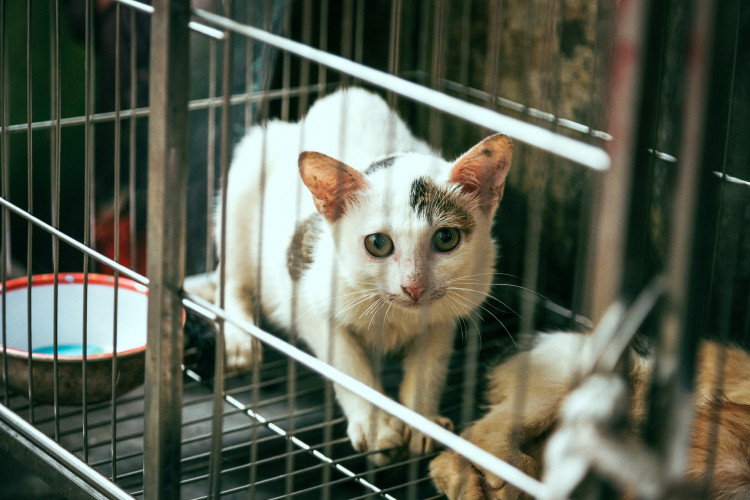An international animal protection organization reported that police in eastern China saved about 150 cats that were headed for slaughterhouses. Police in the eastern city of Jinan in Shandong province discovered the creatures jammed into rusted cages, according to a statement released by Humane Society International (HSI) on Tuesday (Aug 30).
According to a local animal rights activist with the group VShine, a gang set up traps with sparrows as bait and used a remote control to close the doors as soon as each cat stepped inside.
In a statement to HSI, an activist who only gave their last name Huang said, "It was shocking to see the state they were in, many of them emaciated and crying out." He continued, "our discovery of dozens of live sparrows used as bait to lure the cats was also a big shock." According to the statement, most of the felines who were saved were likely once owned as pets and taken to nearby animal shelters.
Additionally, activists discovered 31 sparrows at the site, a protected species in China. They were released back into the wild. Although there are no laws in China to prevent animal cruelty, the suspects might be punished for bird hunting, stealing property, and breaking the regulations against animal epidemic prevention.
HSI estimates that each year in China, 4 million cats and 10 million dogs are slaughtered for human consumption. Although the practice has steadily decreased as pet ownership has increased, dog and cat meat are still valued as a delicacy in some regions of China, and the trade in their flesh is still profitable enough to motivate criminal gangs to take pets.
The southern Chinese city of Yulin holds a dog meat festival every June where live cats and dogs are offered for consumption. In the southern Chinese regions of Guangdong and Guangxi, eating dogs and cats has a long history.
"These are China's two main cat meat eating hotspots," Dr. Peter Li, HSI China policy specialist, said in a statement. "Throughout the rest of mainland China, cat meat is not part of the food culture at all."
Following the COVID-19 pandemicc, which was linked to a market in the Chinese city of Wuhan that sold live animals for consumption, demand for cat and dog meat seems to have decreased even further.
In April of that year, the Guangdong towns of Shenzhen and Zhuhai became the first in China to ban the consumption of dogs and cats.





